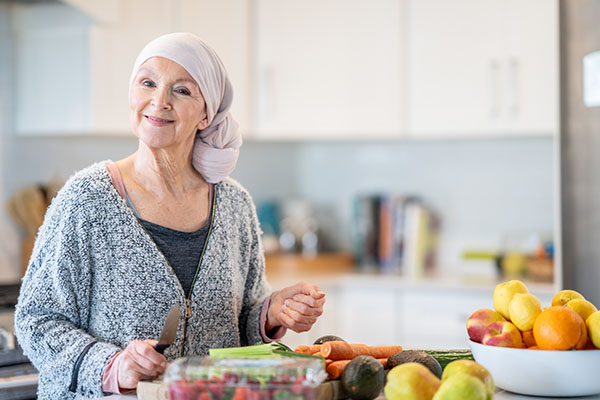 An ancient Greek philosophy says, “let food be thy medicine, and let medicine be thy food.” While the food we eat isn’t a direct treatment for illnesses such as cancer, maintaining a balanced diet decreases the likelihood of developing disease by increasing the amount of immune-boosting nutrients consumed.
An ancient Greek philosophy says, “let food be thy medicine, and let medicine be thy food.” While the food we eat isn’t a direct treatment for illnesses such as cancer, maintaining a balanced diet decreases the likelihood of developing disease by increasing the amount of immune-boosting nutrients consumed.
The vitamins and nutrients found in many vegetables, fruits, legumes and nuts assist with strengthening the immune system, reducing inflammation, slowing cancer growth, regulating hormones and repairing damaged cells. We’ve compiled some foods that may help reduce your cancer risk. Go over this list with your health care provider to determine which foods could better your diet as well as your overall health.
- Apples contain polyphenol, a nutrient that can help prevent inflammation, cardiovascular disease and other infections.
- Berries contain antioxidants that help slow the spread of cancer cells as well as repair and protect good cells.
- Broccoli is made up of a nutrient called sulforaphane, which is also found in kale, cabbage, and cauliflower. Sulforaphane can help block cancerous DNA mutations, slow tumor growth, and reduce the ability of cancerous cells to multiply.
- Carrots are full of vitamins including beta-carotene, that can help slow the growth of cancer cells and protect from toxin damage.
- Dark chocolate, when consumed in moderation, has antioxidants that can reduce cell damage and lower blood pressure.
- Spinach includes antioxidants that destroy cell-damaging toxins known as free radicals.
- Tuna contains omega-3 fatty acids, which are believed to slow the growth of tumor cells and reduce inflammation.
- Yogurt’s probiotics can help strengthen the body’s immune system and better fight off infection and disease.
- Walnuts have vitamins and antioxidants that reduce inflammation and help destroy free radicals.
- Whole grains contain fiber which helps nourish microbes in the digestive tract and therefore helps process food quicker.
While maintaining a healthy diet and weight can help reduce your risk of cancer, it is not the only factor. Other ways to reduce your risk include staying physically active (going to the gym, attending a fitness class, or getting outside and walking around the block), drinking alcohol in moderation, and scheduling your annual screenings and primary care appointments.
For more information about Trinity Health Mid-Atlantic oncology services or to schedule an appointment, visit St. Mary or Mercy Fitzgerald.
